Check out some books by your tutor Fiona Veitch Smith … (click on the book covers to find out more)
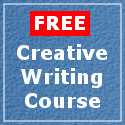 Hello everyone, welcome to the first session of our free online creative writing course. Over the next eight sessions we will be looking at different aspects of creative writing and trying our hand at various forms. I’d strongly encourage you to have a go at the exercises along the way, and please feel free to leave comments or ask questions at the end. If you have arrived on this page without first reading the home page and frequently asked questions page (on tab above) please go back and do so now. If you have read them, enjoy the course!
Hello everyone, welcome to the first session of our free online creative writing course. Over the next eight sessions we will be looking at different aspects of creative writing and trying our hand at various forms. I’d strongly encourage you to have a go at the exercises along the way, and please feel free to leave comments or ask questions at the end. If you have arrived on this page without first reading the home page and frequently asked questions page (on tab above) please go back and do so now. If you have read them, enjoy the course!
Creativity and Art
What is creativity? The Collins dictionary defines it as ‘the ability to cause something to exist’. Without getting into too much of an existential discussion, I would say that with every thought that is expressed, something has been created. It was Descartes who said: ‘I think, therefore I am’; well I would add, ‘I think, therefore I create’ (do you feel a God complex coming on?). But how do we express our thoughts? Sometimes we do it verbally, other times by body language and still again through what is loosely termed ‘art’.
Art takes place when a thought is expressed and fixed in a way that other people may experience it on an aesthetic level – through music, writing, painting, sculpture, choreography and so on. Many artists say that their best work takes place when they ‘by-pass’ the thought and simply express the feeling. This may be true, but for writers, who use a verbal medium, a feeling must first be converted into a thought before it can be put into words. Don’t over analyse the thought before you express it, as this way you can ‘channel’ the purest interpretation of the feeling, but some cognitive process needs to take place. Some writers prefer to mull over a thought and give it form before they put pen to paper – I’m one of them – but it’s good practice to try and switch off the ‘editor’ at least for the first draft. First response trigger exercises are useful in this regard and can release some unexpected words and images.
Exercise 1:
Write down your first response to these words or phrases:
- Blue ball
- And that’s when the sadness came
- Coffee
The first task of a good writer is to convert feelings into thoughts and then into words. This is the raw material that can then be converted into something more permanent. Some writers refuse to toy with their first drafts, believing their creativity will be diluted; I disagree. Allowing your critical mind to improve a piece of writing is where the craftsman meets the artist. Something produced only by the former will lack soul and something by the latter will lack form. Good writing is a combination of art and craft.
For public consumption
Art, of course, is highly subjective and one woman’s masterpiece is another woman’s unmade bed. We all have the ability to create, but whether or not our creation is ‘art’ must be left to the eye or ear of the beholder.
In this session we will look at how you can craft those creative thoughts into creative writing to share with other people. And that’s what sets ‘public’ writing apart from ‘private’ scribblings – there’s a perceived readership in mind. When I ramble on in my journal, I am the only one who will read it (hopefully!) so my only concern is getting my thoughts down on paper. The moment I want someone else to read it I begin to consider ways to improve the presentation and craft it into something more aesthetically pleasing. I consider which words may sound more colourful, whether or not my sentence structure is grammatically correct, whether I’m using evocative imagery, and so on.
Story, feeling or image?
What is it about those creative thoughts that you think might be of interest to other people? Do they speak of an eternal truth or a common experience? Do they make you laugh or cry? Do they suggest a story that will entertain or a poem that captures a moment that must be shared?
Exercise 2: In 50 words or less write down why you want to write then list three creative thoughts that you’ve had lately (each 10 words or less). These may be an image, a musing, a ‘truth’, a story, or so on. If you haven’t had any, take yourself for a walk and look around; what grabs your imagination? Browse through a newspaper or a magazine; do any stories or pictures catch your attention? Think back over your day; did anything funny, charming, shocking or unusual happen to you or someone you know?
Poetry or prose?
Some people are more suited to writing poetry than prose and some people do well at both. Although we won’t be discussing it in this course, other people are more suited to script. I’m one of them. I’ve had relative success as a prose writer and in fact have managed to earn a living from it, but it’s taken years of hard work to get to this point. I recently branched out into scriptwriting and found that I had much more of a natural ability. (If you’re interested in finding out more about scriptwriting, check out getting started in playwrighting). You may find that you’ve been trying to make it as a poet when actually you’re more suited to prose. Now I don’t want to pigeonhole anyone, but ask yourself the following questions:
- Are you more attracted to films than stills?
- Do you enjoy telling people ‘stories’ from your life?
- Do you prefer to read stories or poems?
If yes, to these, then you may be more suited to prose than poetry. If no, then the opposite may be true. If it’s ‘sometimes yes, sometimes no’ then perhaps you are suited to both. We shall be looking at how to write poems in more detail in session 7, but suffice to say, a poem is like a snapshot of a moment. If you can’t rest until you know what happened before and after, then prose may be your genre.
Exercise 3: Take one of the three creative thoughts you wrote down in Exercise 2, then list 20 separate words that communicate or describe that thought. Do not, at this stage, link the words into sentences. Once you have your 20 words use them in a poem of 16 lines or less. Then, take the same 20 words and work them into a short story of under 300 words. Which exercise came more easily? Which form has best communicated your creative thought?
Further Resources:
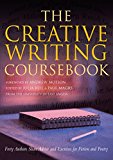
There are some excellent resources out there for creative writers. To get quick ‘starter’ images when your own well is dry I recommend The Writer’s Block by Jason Rekulak. I’m currently working through The Creative Writing Coursebook by Julia Bell and Paul Magrs and finding it very useful.
The next creative writing course session is how to write a short story. But before you move on to that, please feel free to leave a comment or ask a question in the box below.
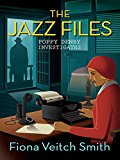
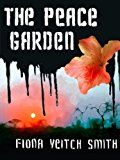
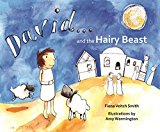
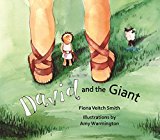
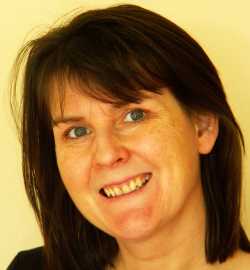 Welcome to The Crafty Writer's free online creative writing course, presented by Fiona Veitch Smith, a freelance journalist, editor, author, playwright, screenwriter and writing teacher. I hope that you'll see a dramatic improvement in the quality of your writing as you work through this course.
Welcome to The Crafty Writer's free online creative writing course, presented by Fiona Veitch Smith, a freelance journalist, editor, author, playwright, screenwriter and writing teacher. I hope that you'll see a dramatic improvement in the quality of your writing as you work through this course.
thanks for making this course free to all, it was just what i needed to get me started! have managed more with all the snow out there and it has also given me some topics to think about, many thanks for kick starting my writing!
you’re welcome. Snow’s pretty bad here too.
Hi Fiona,I just wanted to ask you how did you know u wanted to be a writer? I’m a college student and I’m not sure of what I want to do, but I know I love to write.
Hi Kayla. I’ve always written stories, poems and songs just as a hobby when I was growing up and into my twenties. I trained and worked as a journalist and worked in the field as well as an actress. But didn’t consider a career in creative writing until I was 30 and a full-time acting career was no longer possible due to family commitments. Writing was a creative outlet for me and I didn’t have to leave home and spend hours working out late.
This is my first lesson and I printed it out. This is so great to be able to have access to free on line lessons. I was looking into going to a community college with tution being over 400.00 for the class and 1 hour driving time. I am grateful you are here.
You’re most welcome. This course was initially developed for a community college class. Good luck with it.
The tasks in the first session served as a reminder of the potency of words to unleash their own surprises in the creative effort. Thanks!
Thanks for making this course available. I’ve been a frustrated writer for so long, but this is really helping. I hope to reach a whole new level of writing. Thanks again.I’m a stay at home wife trying to share life’s adeventures.
You’re welcome Edie.
i think its a very nice cource that we can use it to improve our writing even it was poetry or prose
I just completed this and I am truly forever grateful that you made this course free because at a time like this in my life, I must use every gift/talent I have just to make ends meet. This first lesson was truly an eye opener for me. I always loved poetry and wrote a lot of it during my highschool and collegiate years; however, it was so hard for me to write that poem tonight! lol Before I continue to the next lesson, I will definitely review this one again because whether it’s prose or poetry, I want to be the best writer I can be and thank you so much; you are truly a blessing for allowing this at no cost.
You’re welcome Candace. I’ve written some terrible poems in my time!
Thank you, thank you, thank you. I write because I need to, I am not sure just what it is that i write, but I think some kind of prose. I have had so much writing pent up and wanting to come out for so long, but nothing moved me to write, then I found this course. The first exercise was amazing! thank you for teaching this and thank you for offering it for free.
You’re welcome Sharon.
I really want to thank you for this course, I’ve done others like this one but yours is by far one of the best… I’m really trying to better myself with my writing skills and since I’m in the process of writing a novel, I have so much to learn about this craft. So everything I can do to better myself in my writing will help. I love writing short stories and maybe one day I’ll have the courage and the understanding on how to submit them to a magazine. Thank you so much for your time and understanding, I’m so excited to go through your course to better myself…
Your friend,
Matthew
You’re welcome Matthew. This course does not teach novel writing per se, but the nuts and bolts of creative writing can be applied to it. Good luck with the novel!
Hi everybody,
does anybody can give me an example answer for exercise 1 and 2 to clearly understand the task. English is not my mother tongue
Would be great. The exercises in general a really helpful.
Thanks in advance
Is anyone brave enough to post their response to exercises 1 & 2 for Jasmin to see?
Is there a signup to receive notifications for 8 sessions? I stumbled upon this site via ehow. I would like to gain this information via email box. Didn’t see a sign up form. Thanks
Hi Diva,
The course was ‘live’ a few years ago and there were email notifications over the course of 8 weeks. But now the whole course is just up on the site. No need to sign up. Just get started by clicking on the first session.
Good luck
Fiona
Here is my answers to exercise 1
1)Blue ball= Moon
2)And that’s when sadness came= when the rain started.
3)Coffee= that’s what we shared
exercise 2
I want to write because it is what I love, the written word bring me stories, laughs, ideas; Sometimes I feel like something is bottled up inside of me, and there is not other way to let go the emotions but to put it on paper, this the way I let go emotions, is my own world nobody judge me, is my escape.
Ok here is part 2 Creative ideas:
1)A street at night, soft light pours from the street lamps, soft rain is falling, a silhouette is in the far end of the street.
2)The edge of a cliff, the winds blows, the sky is grey and the sea is mad.
3)A large room, with dark blue walls, heavy drapes on the windows, only one window is open, a chair is close to the window.
English is not my native tongue either so hope I understand the exercises correctly.
There is no right or wrong. This is just to get your juices flowing. Some people write whole paragraphs for exercise 1, others just words or phrases.
Hi Fiona, and thanks for these lessons. I’m 2/3 of the way through exercise #3 on Lesson One. This is so exciting! I have lots of ideas in my head about various things I’d like to write (mostly fiction), but I’ve always felt intimidated by the whole process. I’ve often wished writing fiction would be as easy for me as pulling out a map and planning my next long-distance car trip. Or, if it could be as direct as following a recipe, that would be even better. I did have some poems published (unpaid, of course) in my university student literary magazine, although I received a degree in Nutrition, not a very creative field, I’m afraid. I’ve discovered I’m able to tap into my intuitive, right-brain side as well as using my more analytical side. Maybe that’s why I enjoy the idea of writing stories, but I also love the free-flow of the poetry I’ve dabbled in. I am so looking forward to each of these lessons. Thanks for providing them free of charge!
You should also try writing non-fiction. Nutrition and the whole health market is a very lucrative area for non-ficiton writers. Check out my course on non-fiction writing and freelance magazine feature writing here http://non-fiction-writing-course.thecraftywriter.com/ But don’t stop your creative writing either! I call one my heart writing and the other my head writing.
Good afternoon, I’m very happy to have found this course I feel I’m on my way to understanding the process of writting. I promised myself this year I’d get into what I’ve longged to do for many years but been affraid to. This is a start. Thanks!
Hi,
I have just found this website and i have a question for you? Do you mark these exercises? If not how do i know if my writing is correct, if i am going in the right direction?
I have been writing short stories since i was a child, i love it. But i want to improve my skills so that others may at some point enjoy them too. Will this course with the addition of the book point me in the right direction and if not is there any writing forums or groups that you could recommend online?
Thanks for reading my questions and i hope you will reply.
Hello Mandy, I used to mark the exercises but there was a fee for it. I became too busy to do so, so have removed the facility. As this course is free there is no way that exercises can now be marked as I would have to pay someone else to do that out of my own pocket. The exercises are designed to help you self-analyse your work. Hundreds of students that I’m aware of have found the exercises useful. If you are interested in a course with feedback both the Open University and Writers’ Bureau offer excellent online and / or correspondence courses – but these, naturally, need to be paid for. For other outlets for your writing please see the last session of this course. While I don’t give paid feedback on the exercises in the course anymore, I do however offer a paid critiquing service for longer pieces of work – poetry, short stories, novels etc. For my rates please see http://www.thecraftywriter.com/services/#critiquing. The only other place you can get free feedback is if you join a writers group in your area. Do a google search to find one. You can then swap work with other writers – you critique theirs, they critique yours. Good luck!
Thank you for your reply, i will do your exercises and see if there is a writers group in my area, that way i will have the best of both worlds. I understand that it would be a lot of work for you to mark every exercise in this course, which is why i had to ask the question. I hope you understand i just wanted an all round view of what your course may entail.
exercise#1
#1.blue ball=pearl
#2.and thats when the sadness came=when the leaves from the trees died and fell
#3.coffee=morning
exercise *2
i what to learn how to write better because i read alot of fiction,stephen king,james herbert are my favourite and as i read their stories i more and more wish to learn to write like them
i was always the best story writer at school and alawys had alot of imagination that needed to escape
i find when i’m reading i get into the book and i am the characters in it,i want be able to write the same so when somone reads my stuff they feel the same
creative thoughts
#1.i see a robin in the garden nearly every day,he sits and stares at me through the window
#2.watching my children sleep brings such emotion to me,i watch them and thank god for them
#3.it was like a wonderland,the trees white with frost,i felt i had stepped out of my front door into a magical land
exercise#3
eerie,cold,wonder,amazed,bewildered,beautiful,frosty,soft,shine,bright
frozen,still,white,wonderland,crystal,winter,breathtaking,bare,shining,trees
excersise#3 part #2
trees bare in the winter sky
frozen in time,still
beautiful and crystal like,shining in the sun
i’m bewildered by how eerie,amazed by there brightness
bare and white in there own wonderland,with they soft glow around them
breathtaking to look upon
cold to touch,frosty beneath my finger tips
i wonder what it would be like to be them
exercise#3 part #3
the day was cold and bright,the trees around her where bare and still in the shining sun,she saw him standing under the crystal trees,waiting for her approach
She was cold but her cheeks flushed a little when she saw him staring at her with that smile on his face
she was amazed at how frosty blue his eyes where,she wondered what those eyes had seen in his past
the brightness of the sun made her squint and he looked eerie,blured in the whiteness of the trees around
she finaly got to him and he opened his arms and took her in to them,the soft fabric of his coat warm against her face
they walked hand in hand through what she called “the wonderland” and was bewildered by the sight around her for it was beautiful
she was frozen and as if he could read her mind he put his arm around her and held her close
i found writing the short story easier,but the poem did come fairly easy to me also
i enjoyed writing the story more though as i could put more in it and use my imagination more
Pingback: Releasing your Creativity – The Crafty Writer « Random Thoughts
I really feel that this course will help me. I need to have a start in creative writing. I feel that I can write fairly good stories. I am really glad that I found this free course. Thanks.
I have really enjoyed this course on short study, I have learned alot that I did not know.
Thanks for having this course, for free.